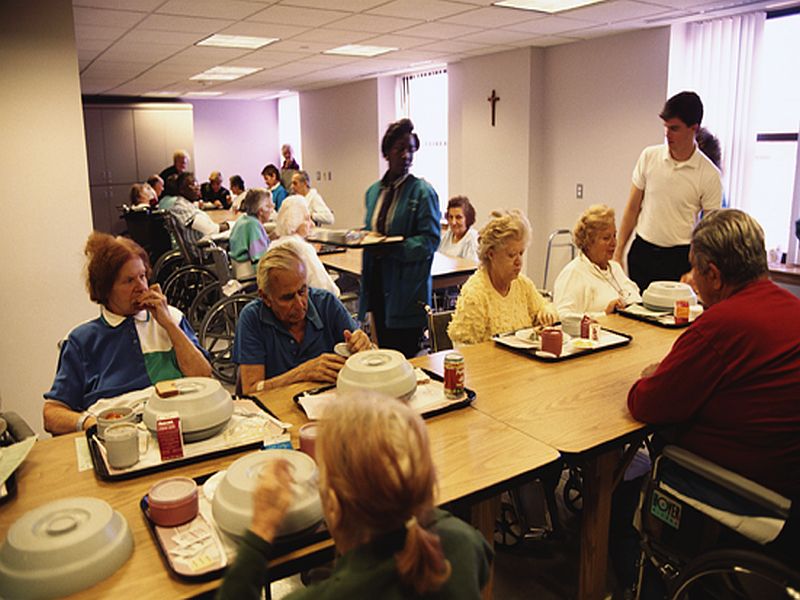
Tuesday, May 17, 2016

TUESDAY, May 17, 2016 (HealthDay News) -- Making meals more enjoyable for people with dementia might reduce their risk of malnutrition and dehydration, researchers report.
Family-style meals and music, in particular, showed promise for improving eating and drinking habits, British researchers found.
"It is probably not just what people with dementia eat and drink that is important for their nutritional well-being and quality of life -- but a holistic mix of where they eat and drink, the atmosphere, physical and social support offered, the understanding of formal caregivers, and levels of physical activity enjoyed," said lead researcher Lee Hooper, of the University of East Anglia.
The researchers assessed various ways of improving food and fluid intake among more than 2,200 people with dementia.
"The risk of dehydration and malnutrition are high in older people, but even higher in those with dementia," Hooper said in a university news release.
Understanding how to help people eat and drink well is very important in supporting health and quality of life for people with dementia, she explained.
"We found a number of promising interventions -- including eating meals with caregivers, having family-style meals, facilitating social interaction during meals, longer mealtimes, playing soothing mealtime music, doing multisensory exercise and providing constantly accessible snacks," Hooper said.
Providing education and support for both formal and informal caregivers also appeared helpful, she added.
However, further research is needed to pinpoint the most effective methods, she said.
The study was published recently in the journal BioMed Central Geriatrics.
SOURCE: University of East Anglia, news release, May 4, 2016
HealthDay
Copyright (c) 2016 HealthDay. All rights reserved.
News stories are provided by HealthDay and do not reflect the views of MedlinePlus, the National Library of Medicine, the National Institutes of Health, the U.S. Department of Health and Human Services, or federal policy.
- More Health News on:
- Alzheimer's Disease
- Dementia




























.png)












No hay comentarios:
Publicar un comentario